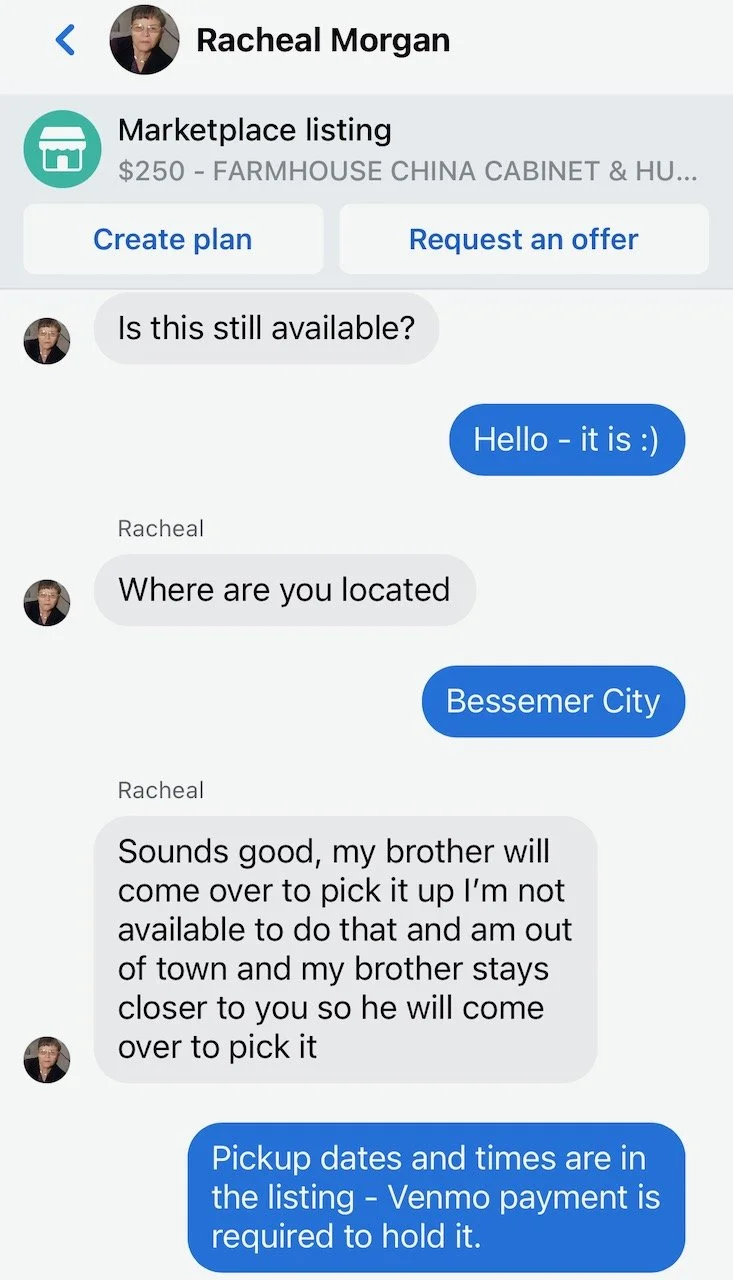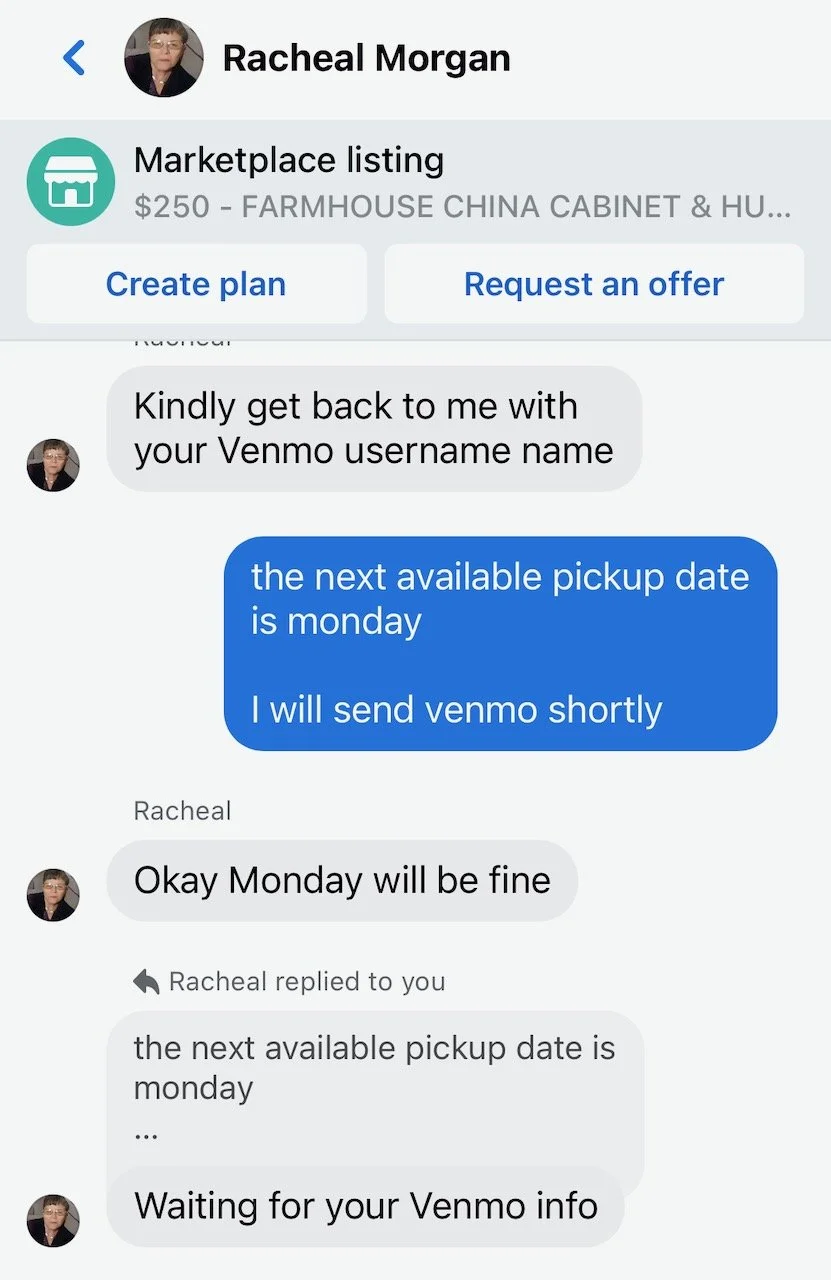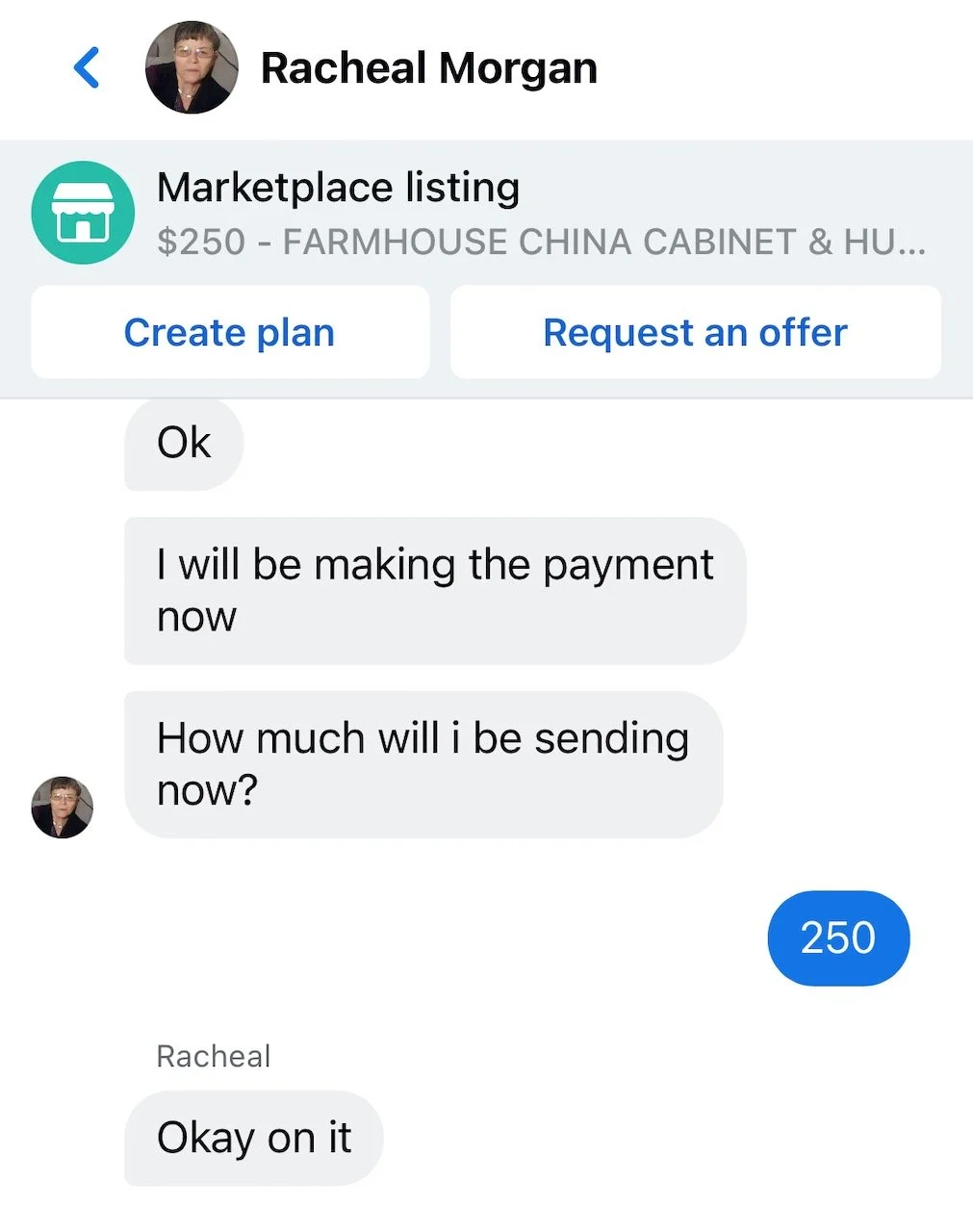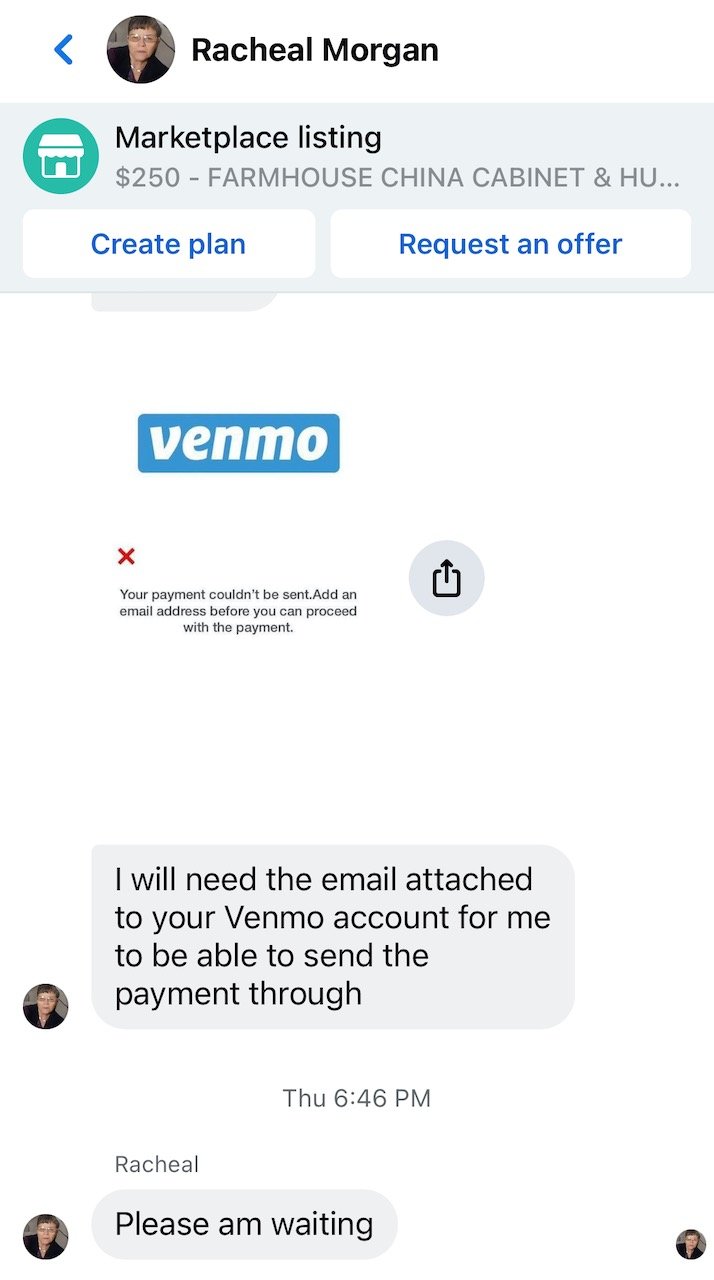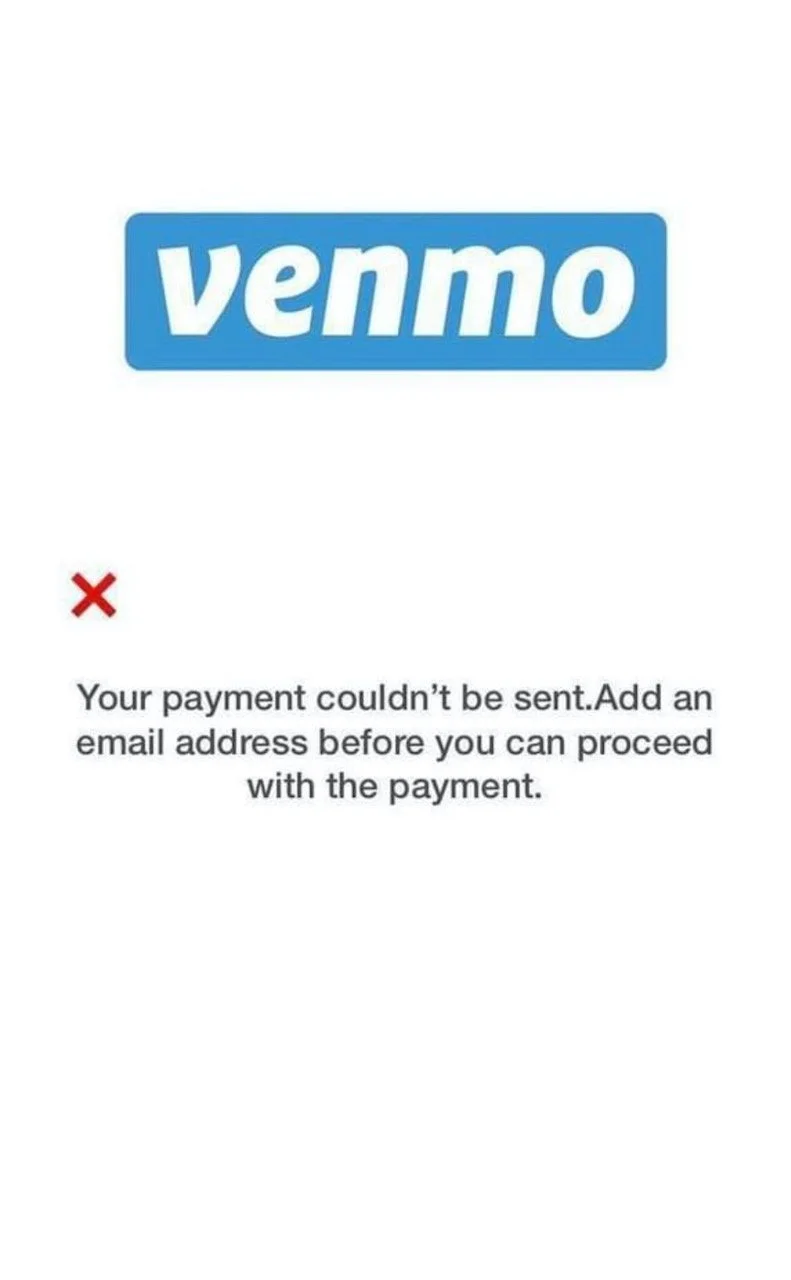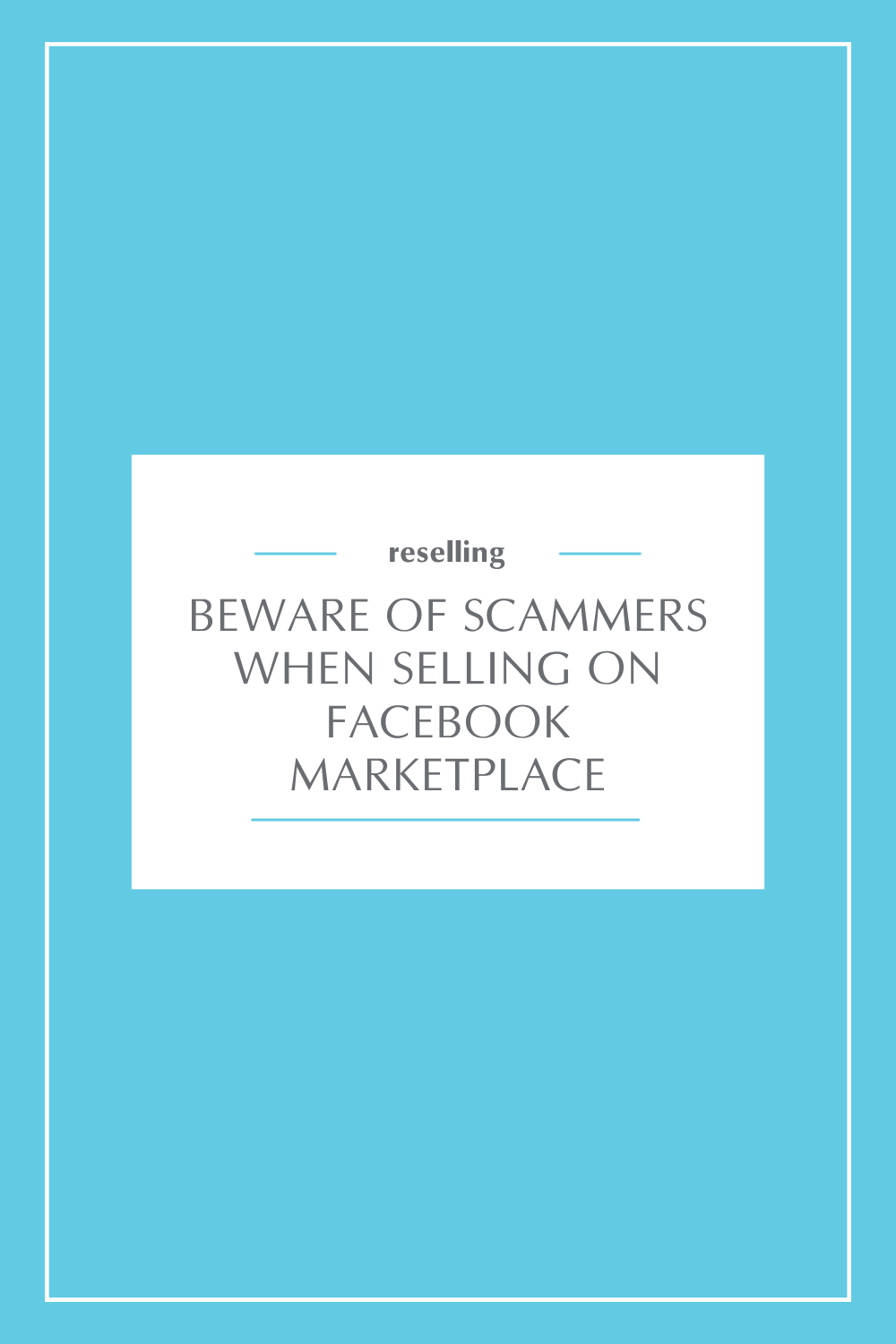Beware of Scammers When Selling on Facebook
Many years ago, before Facebook Marketplace existed, people sold locally on Craigslist and I often recommended it to organizing clients who wanted to purge yet also recoup some of their money.
One organizing client seemed confident that she could navigate the Craigslist so I left her to it. A few weeks later when I arrived at her home, I asked her how it was going with the reselling.
She proceeded to tell me about a potential buyer and how she was excited about them picking up the item. The buyer had requested to wire the funds and planned to send her more than she was asking as a deposit. Once the item was picked up, the buyer would then request a refund for the difference.
RED FLAG
These types of scams were all over Craigslist at the time; I was relieved when she said, “it seemed fishy so I declined.”
Thank goodness!
Now that Facebook Marketplace has become THE place to sell locally, the scammers have jumped ship as well.
Beware of this type of scam when selling on Facebook
RED FLAG #1: THEY ASK QUESTIONS WITH OBVIOUS ANSWERS
Aside from the annoying message of “is this still available”, the next question of “where are you located” is a red flag.
When listing an item, you are required to disclose the location; therefore the question has an obvious answer.
I rarely give out specifics unless payment has cleared and/or pickup details have been arranged.
RED FLAG #2: SOMEONE ELSE WILL PICK IT UP BECAUSE “THEY STAY CLOSER TO YOU”
The exact phase “They stay closer to you” is the red flag here. I’ve had over 10 scammers message me in the last month, over half of them have used that exact phrase.
RED FLAG #3: TYPOS
I am no master typist, however more than one typo is generally a red flag for me that a bot (or someone else) is on the other side of the conversation.
Notice the second question asked with an obvious answer. The price of the item is listed directly above the chat.
RED FLAG #4: THEY ASK FOR YOUR VENMO EMAIL ADDRESS
Digital wallets like Venmo and PayPal are the preferred way to get paid these days. HOWEVER, there is close to zero protection from Venmo or PayPal if your account is hacked and the money is transferred to an account that isn’t yours. These services are not heavily protected like credit card transactions and the like.
Two pieces of information to make a successful Venmo transaction is:
Your username (or QR code)
The last 4 digits of your phone number
And even then they can process payment without entering that information.
I almost replied back with “would you like my password too?” but I thought that was a little too cheeky. ;)
Notice the close up of Venmo error message. Do you see the punctuation error? That is indeed NOT a valid message from Venmo and something I (or you) could have created on Canva in a matter of minutes.
Notice the punctuation error?
This particular scammer eventually moved on. Sometimes I will reply with “no thank you” when I realize it’s not an actual person. They usually move on after that.
Have you ever found yourself in a chat with a scammer on Facebook? How did you know it wasn’t a real customer?
Pin for later

